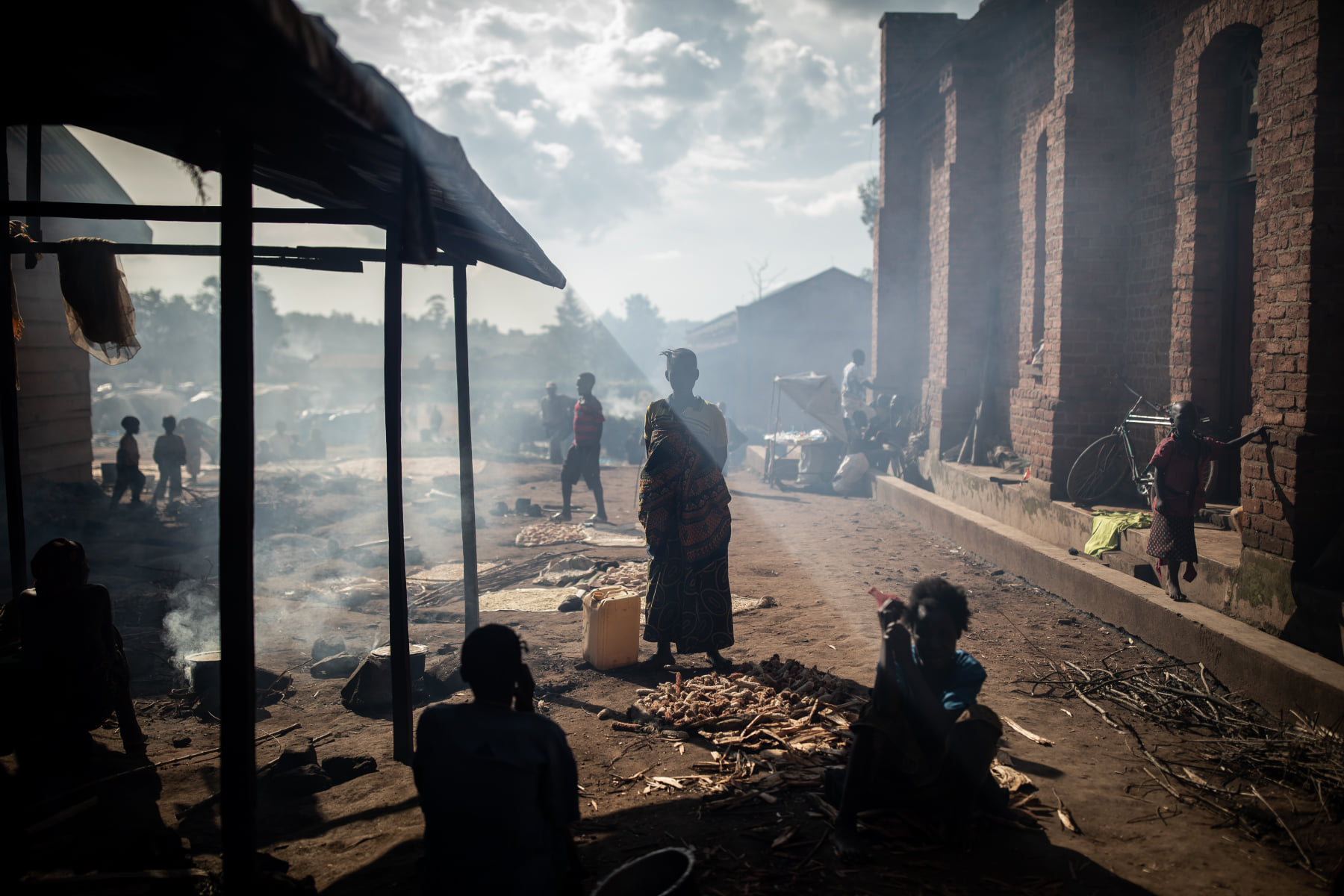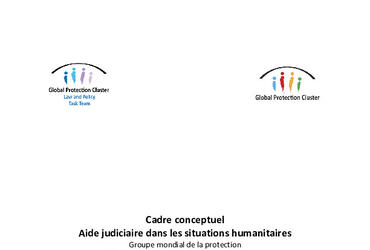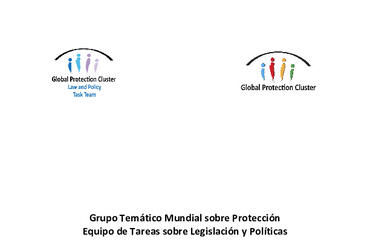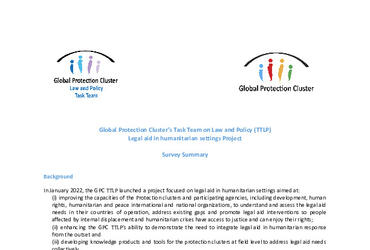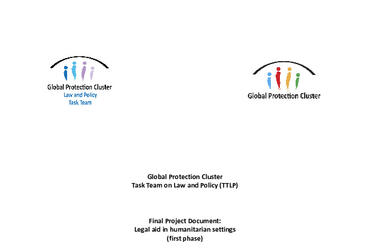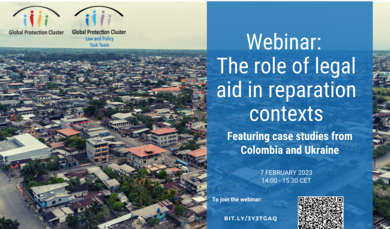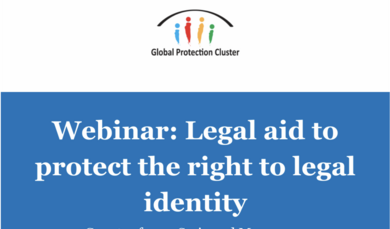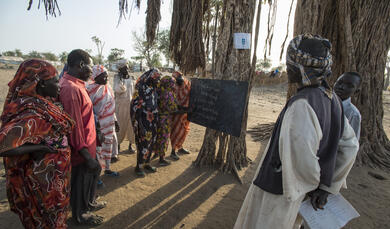The Project
The Global Protection Cluster’s Task Team on Law and Policy (TTLP) strategy (2021-2024) focused on promoting and supporting the implementation of relevant legal and policy frameworks to improve affected people’s access to justice and enjoyment of their rights. The project “Legal Aid in Humanitarian Settings” aims to improve the capacities of field protection clusters, AoRs, their members and partners, to better understand and assess the legal aid needs in their countries of operation, address existing gaps and promote relevant legal aid intervention, and develop necessary knowledge products and tools to address legal aid needs collectively.
Project deliverables include:
● Project Concept Note
● Virtual Library on Legal Aid in Humanitarian Settings
● Legal Aid Survey on Key Aspects of Legal Aid in Humanitarian Settings
● Legal Aid Analysis Tools (available in English, French, Spanish and Arabic)
- Conceptual Framework,
- Legal Aid Analysis Framework
- Guidance Note
Project Tools
Featured Events
Webinar: Legal Aid to Protect the Right to Legal Identity
- Thu, 05/18/2023 - 10:30
Webinar on Engaging with Informal Justice to Respond to Legal Aid and Justice Needs in Humanitarian Settings
- Thu, 11/09/2023 - 13:00

